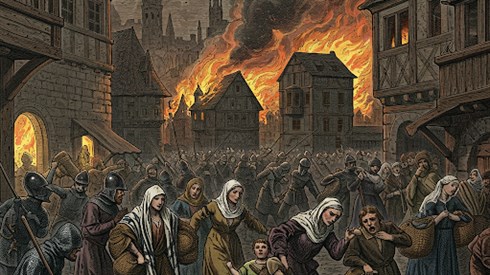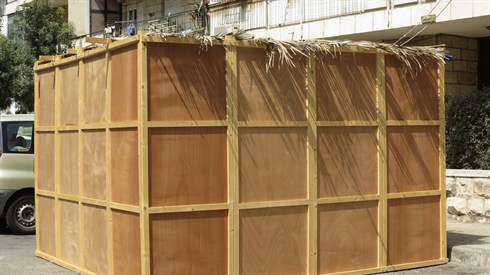Beit Midrash
- Sections
- Chemdat Yamim
- P'ninat Mishpat
721
In a previous court case, a wife demanded spousal support, and the husband responded that after transferring his portion of their joint apartment, she expelled him from the home and hit him. He wants reconciliation, if she is willing to treat him civilly, which is what beit din ruled should be attempted, but she refused over a long period of time. The husband now demands back his part in the apartment.
Ruling: The regional court ruled that the wife does not have to return his part in the home because presents are permanent, even if subsequently the relationships sour (based on Shulchan Aruch, Even Haezer 99:2). The exception is special clothes and the like that were given just to beautify the wife in his presence (commentators, ad loc.). Another exception, when the wife is a moredet (refuses to take part in conjugal relations), does not apply because all agree that the husband is impotent.
The Supreme Rabbinical Court argued for the following reasons. While there are distinctions between different types of presents, there should be no question that presents that were meant for joint use revert back to the giver when the relationship is over. It makes no sense that the husband should give his wife his home so that she should live there herself after expelling him. The wife admitted that he gave her his part so that she could live there after his death, which implies that he did not do so for her to have the ability to take it from him.
There is another reason for her to not keep the present, based on a comparison to the laws of moredet (even though she is not fully a moredet). Whereas a moredet loses her ketuba as a sanction, that which she returns presents is based on the logic that he did not give them under such circumstances (Gra, EH 77:28). Although she loses the presents only after 12 months when she becomes a moredet, that is because until then we give her time to change her stand, but after that time the loss of presents is not based on the status of moredet. It is for that reason that when a woman claims that her husband is despicable in her eyes, she has a right for a get, yet she does not keep that which he gave her. That which the Shulchan Aruch (ibid.) says that she keeps her presents is when, from her perspective, she is willing to continue with him, even if it is difficult to do so. In a case, though, that she consistently refuses reconciliation, she does not retain the presents. Thus, the husband gets back his portion of their joint home.

P'ninat Mishpat (790)
Various Rabbis
125 - Status of Child of Woman Who Had Civil Marriage
126 - The Status When the Marriage Proves Unviable
127 - The Obligation to Divorce “Disgusts” His Wife
Load More

P'ninat Mishpat: Amounts and Conditions of Payment to an Architect – part IV
based on appeal of ruling 83061 of the Eretz Hemdah-Gazit Rabbinical Courts
Beit Din Eretz Hemda - Gazit | Sivan 5785

P'ninat Mishpat: Benefit from Unsolicited Efforts of the Plaintiff
based on appeal of ruling 82138 of the Eretz Hemdah-Gazit Rabbinical Courts
Beit Din Eretz Hemda - Gazit | Av 5785

P'ninat Mishpat: Unsuccessful Transfer of Yeshiva – part IV
based on ruling 82138 of the Eretz Hemdah-Gazit Rabbinical Courts
Beit Din Eretz Hemda - Gazit | Nisan 5784

P'ninat Mishpat: A Used Car with a Tendency for Engine Problems
based on ruling 84034 of the Eretz Hemdah-Gazit Rabbinical Courts
Beit Din Eretz Hemda - Gazit | Iyar 5784

Various Rabbis
Various Rabbis including those of of Yeshivat Bet El, such as Rabbi Chaim Katz, Rabbi Binyamin Bamberger and Rabbi Yitzchak Greenblat and others.

Unfulfilled Raffle Prize – part II
Av 1 5777

Moreshet Shaul: A Crown and its Scepter – part II
Based on Siach Shaul, Pirkei Machshava V’Hadracha p. 294-5
Av 5785

Good and Evil Depend on the Actions
5777 Tammuz 22







































